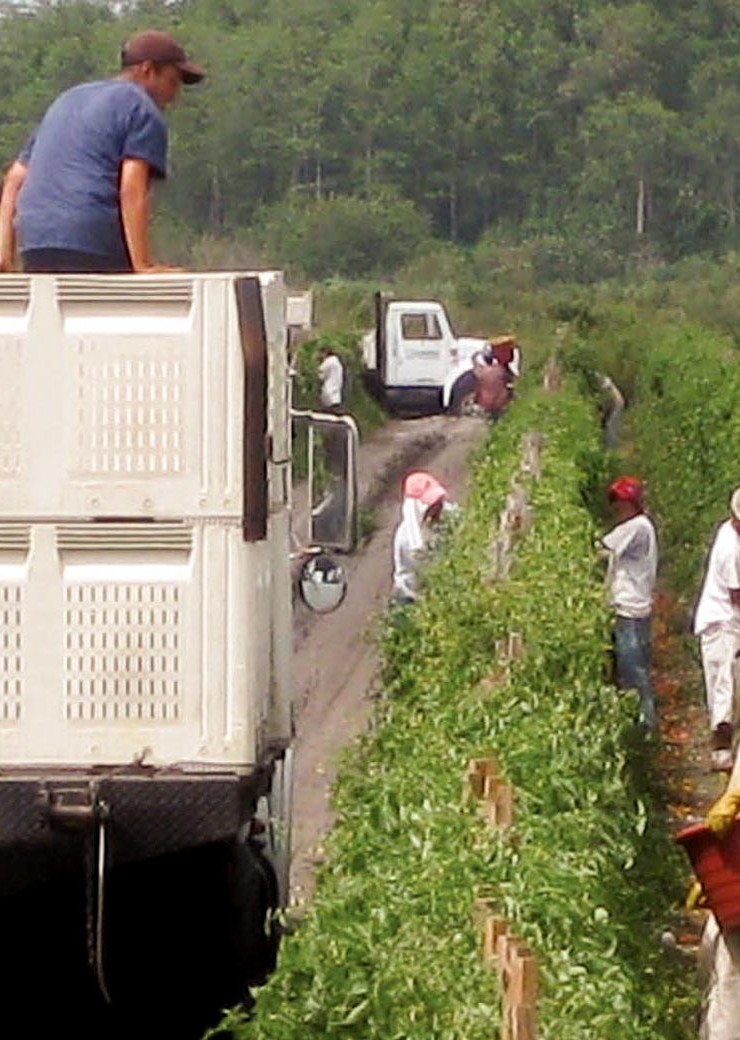On Friday, the New York Times devoted front-page space to the amazing progress that our longtime partners the Coalition of Immokalee Workers has made toward fair treatment of farmworkers.
Marching for Justice
Proud as I am of Bon Appétit’s contribution to the Coalition of Immokalee Workers’ cause, I’ve long wanted to help in a more personal way. So when Cheryl Queen, vice president of communication and corporate affairs for Compass Group USA, said she was going to accompany them for two days of the two-week march, I immediately said, “I’ll go with you!” with great enthusiasm and not much thought.
A Hot New Twist on Low Carbon Diet Day
Food can be a terrific vehicle to use for educating people about complex topics, and luckily, I work for a company that has an army of chefs who enjoy just this kind of challenge. Bon Appétit was the first food service company to address food’s role in climate change, and every year around Earth Day, our chefs change their menus and explain to their diners at corporations, colleges and universities, and museums in 32 states how their every day food choices affect our planet. For Earth Day today, we’re doing something a little different. Our chefs are standing in front of guests at a cooking demonstration table, making almond-milk-fruit smoothies, cheeseless pizzas, and edamame burgers with carrot peel toppings. They’re talking about how climate change isn’t just this storm gathering way down the road, it’s here and it’s affecting some of our favorite foods.
Looking at Our Initiatives From the Other Side of the World
This year I went trekking in the Himalayas of Nepal. Here are a few of the things I witnessed and how the experience sometimes turned my views on our sustainability commitments on their side.
The real question about local food
“Which is better for the environment and the economy — a tomato grown nearby or one from the supermarket?” That’s how USA Today starts off a recent piece titled “Local food is trendy, but is it really more eco-friendly?,” discussing two new books that claim to debunk the idea that it is. This argument is a pretty moldy one — it’s been floating around since we launched the Eat Local Challenge, back in 2005 — and it surprises me that anyone still likes to take a bite of it.
